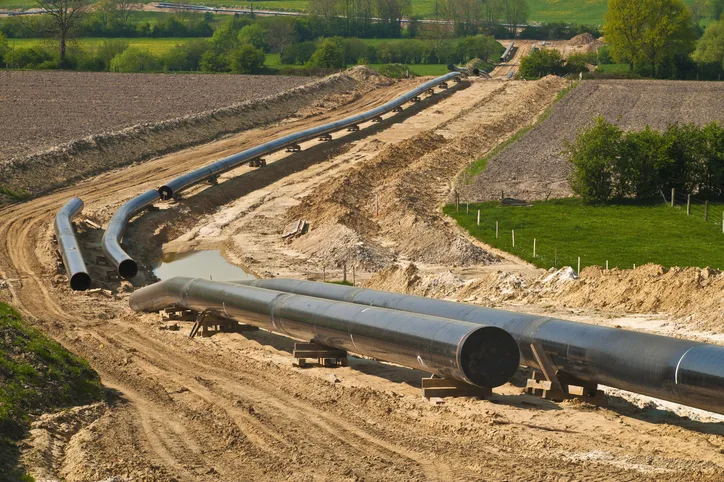
Undefeated Pipeline Explosion Lawyer
How safe is the nation’s rapidly expanding network of pipelines?
While inspections are critical to ensuring the integrity of this vital infrastructure, a year-long investigation conducted by Politico has revealed a system rife with bias and conflicts of interest that often allows serious safety lapses to go unaddressed.
Time and again, this dangerous lack of oversight has led directly to pipeline accidents and explosions, often with catastrophic consequences for the environment and surrounding communities.
PHMSA Relies on Pipeline Companies For Inspections
The federal Pipeline and Hazardous Materials Safety Administration (PHMSA) and various state-level agencies oversee the 3.3 million miles of pipeline that currently transport natural gas, oil, carbon dioxide, hydrogen, and other hazardous materials throughout the continental United States.
However, with just 200 inspectors on its staff, the PHMSA has struggled to keep up with the nation’s growing pipeline network and currently devotes only 7 percent of its time to inspecting newly constructed lines. The bulk of such inspections are actually left to around 8,000 private inspectors hired and paid by the pipeline companies themselves. When private inspectors identify safety issues, it’s also left to the pipeline company to decide when to address the problems or even to address them at all.
While the companies defend this privatized inspection system, comparing it to the quality control programs undertaken in many industries, eight inspectors interviewed by Politico asserted that their safety warnings and recommendations were often ignored, while those who dared to push back risked being fired.
“The inspectors are like a smokescreen,” said one pipeline inspector turned whistleblower from Upstate New York. “They put them on the project as a scapegoat.”
“If you come forward with these issues, you get fired or harassed,” he went on to tell Politico “Those are the words we hear all the time — ‘job scared.’”
The Consequences of Lax Pipeline Inspections
The consequences of lax pipeline oversight are often catastrophic.
Take the Revolution ethane pipeline, a section of which exploded near Aliquippa, Pennsylvania, in 2018. During construction, inspectors had repeatedly warned that the segment was being built on unstable ground, describing in a dozen reports wet soil, landslides and failed efforts to contain runoff. Then, in September 2018, the muddy hillside collapsed and the pipeline ruptured, igniting a fireball that destroyed a nearby home. Fortunately, the family inside the house escaped with their lives, although a dog and several cats died in the blaze.
According to Politico, a subsequent grand jury report revealed that a “punch list” of construction flaws identified by private inspectors had been allowed to go unfixed. Had the pipeline developer acted to address those issues, the disaster might have been prevented.
Other recent pipeline inspection issues identified by Politico have been linked to oil spills in Kansas, damage to farms in Oklahoma, and widespread erosion problems plaguing the Mountain Valley pipeline project in Virginia and West Virginia.
Pipeline Construction Boom On the Horizon
Regardless of the outcome of the next presidential election, the United States is on the cusp of what could be an unprecedented boom in pipeline construction. The Biden administration is investing billions to promote carbon capture and storage, much of which will go toward new pipelines. Meanwhile, Trump has promised to boost drilling and add more oil and gas pipelines if elected to another term. New pipelines will also be needed if, as expected, North America’s liquefied natural gas export capacity doubles in the next few years.
According to Politico, federal data indicates that 6,000 miles of oil, gas and liquids pipelines are currently in the planning stages or under construction. But many new projects are meeting resistance, even in some of the nation’s most energy-friendly states, with landowners insisting they can’t trust either the pipeline companies or the private inspectors they hire.
“They’re all in the same club. They’re not going to crap on the guys they work with every day,” one Iowa farm told Politico. “It means zero to me.”
Contact Our Undefeated Pipeline Explosion Lawyers For a Free Consult at 1-888-603-3636
Our Undefeated Pipeline Explosion Lawyers have won billions for explosion victims across the United States and have repeatedly recovered Record-Breaking Verdicts and Settlements against the largest pipeline, plant, and refinery operators in the world.
If you or a loved one were hurt in connection with a pipeline explosion or accident, please call 1-888-603-3636 or click here to fill out our confidential contact form.
All consultations are free, and because we only represent clients on a contingency-fee basis, you won’t pay us anything unless we win your case.